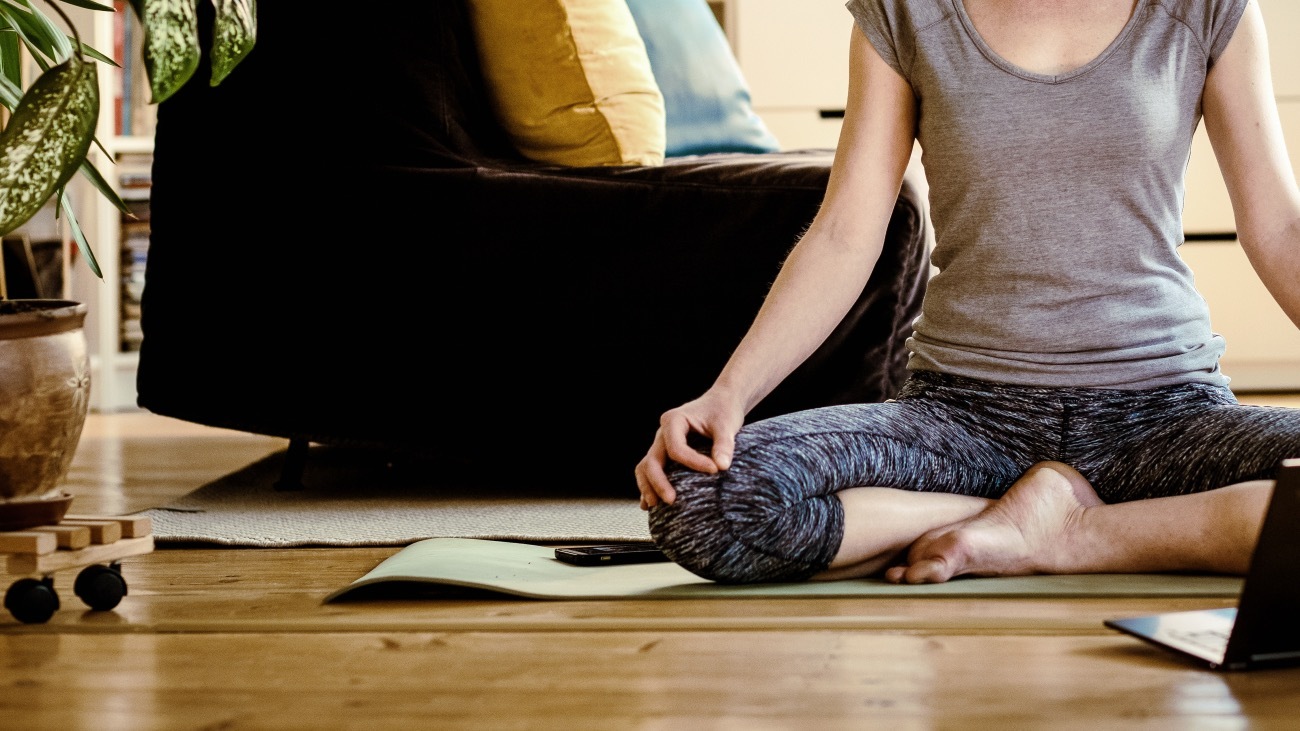Yoga Alliance Professionals

Alongside “unprecedented”, “zoom-bombing” and “quarantini”, the “new normal” swiftly became a buzz-word of the Coronavirus lockdown. For some, adjusting to the “new normal” has brought with it a renewed sense of freedom. Unbeholden to the whims of a manager or studio owner, many yoga teachers have embraced a new timetable best befitting their own lifestyle. For those individuals who have found themselves thriving under their own management, perhaps now is the time to consider an at-home studio.
It certainly seems to be a growing trend. As teachers look for ways to accommodate a heightened public concern for indoor gatherings, all the while reducing overheads, the home studio offers a pandemic-friendly alternative to larger studios or corporate spaces. Operating from a home-studio, yoga teachers could welcome in a select number of students in a self-contained space, offering each a bespoke service in a safe environment. Could this be the “new normal” for yoga businesses?
The answer, given the current climate, could well be “yes”, assuming the teacher is willing to do a bit of research beforehand…
Hosting yoga classes at home can raise additional potential risks to your students, and yourself. Say a student trips on a crack in the floorboards, or is burnt by a radiator, while such injuries are not necessarily related to your teaching, as the owner of the building, you can be held accountable.
Prior to setting up a home studio, it is advisable to check the coverage of your home insurance and increase this to include both public liability and business contents if needed.
Whether you need planning permission depends on the extent to which the house changes as a result of the business. Will the primary function of your home continue to be that of a private residence? If the scope of your proposed business is small, and you are using an existing room or outhouse there shouldn’t be a need to apply for planning permission.
According to Planning Portal, if the answer to any of the following questions is yes, you will likely be required to obtain planning permission.
Whether you require planning permission for an extension or outhouse, will depend on the size and scope of the extension for your home studio. In a lot of cases, Permitted Development Rights will permit you to build onto a residential property without the need for additional permissions.
It is also worthwhile seeking permission from your landlord or mortgage provider, to make them aware of the change in use to the property.
Assuming you use your home yoga studio as a space to conduct your personal practice, you should be exempt from Business Rates. The exception to this is if your yoga studio will be in use for several hours a day, several days a week. You can find more information on this here.
As pubs reopen and in-person gatherings once again commence, it is likely that “quarantinis” and “zoom-bombing” will quickly become memories of a time-gone-by. Certain aspects of the “new normal” will likely survive, as individuals embrace a new lifestyle and profession more suitable to modern living. For yoga teachers thriving in a new state of independence, the “new normal: could well come in the form of a home-studio.
These Stories on teaching
10 Beaverhall Road,
Edinburgh,
Scotland,
EH7 4JE
Copyright © 2025 Yoga Alliance Professionals Ltd. All Rights Reserved. Terms of Use | Privacy Policy
YOGA PROS ORGANISATION LIMITED, trading as YOGA ALLIANCE PROFESSIONALS, is a Not for Profit Scottish Company number SC502923
No Comments Yet
Let us know what you think